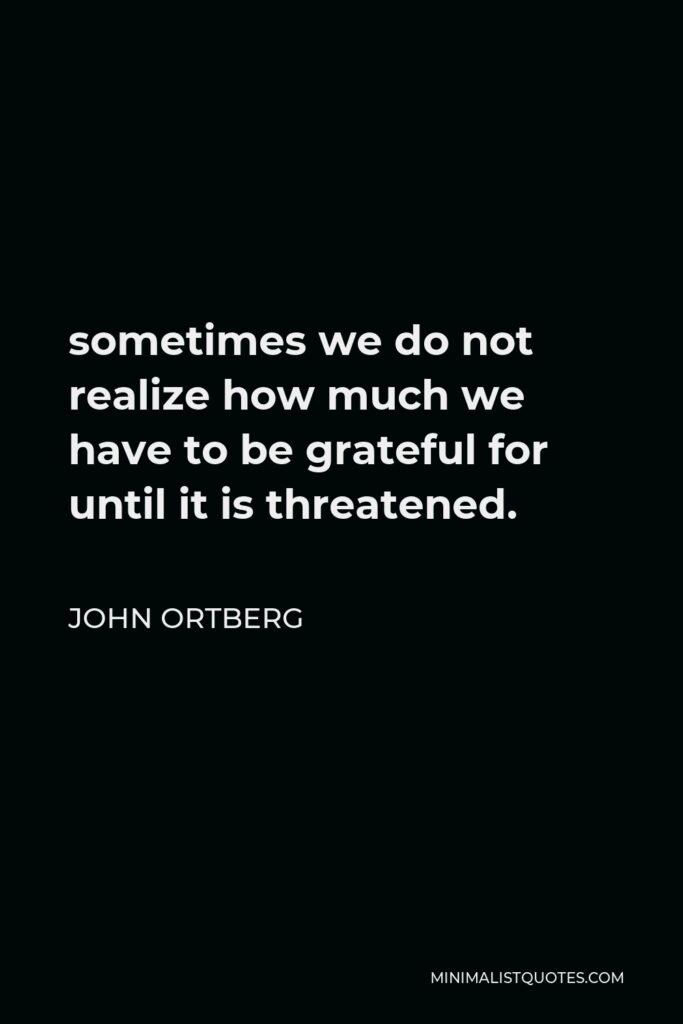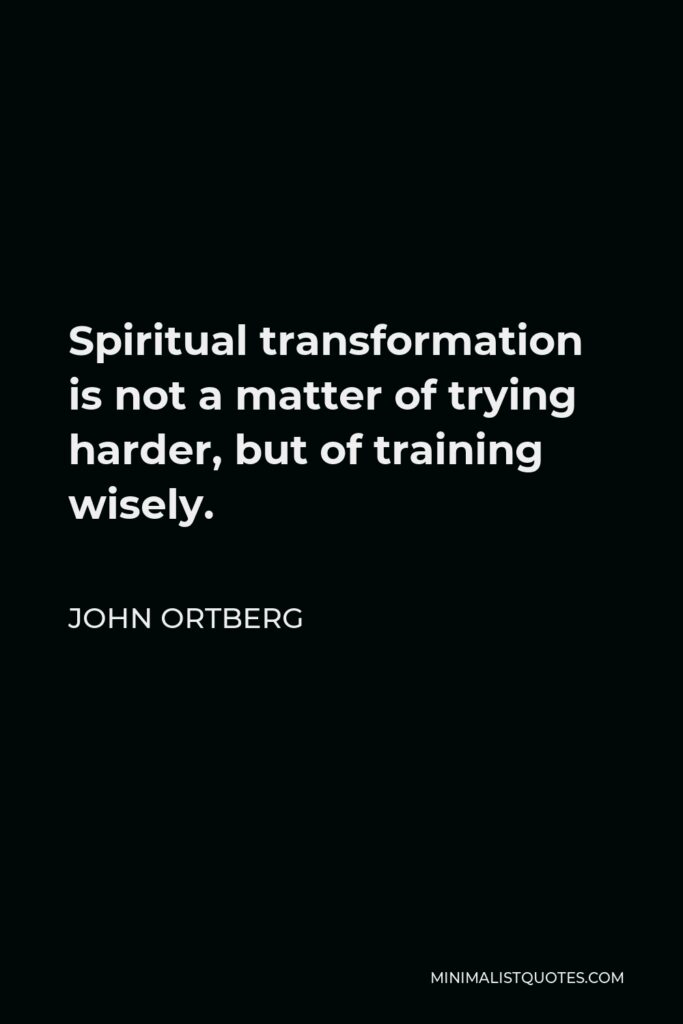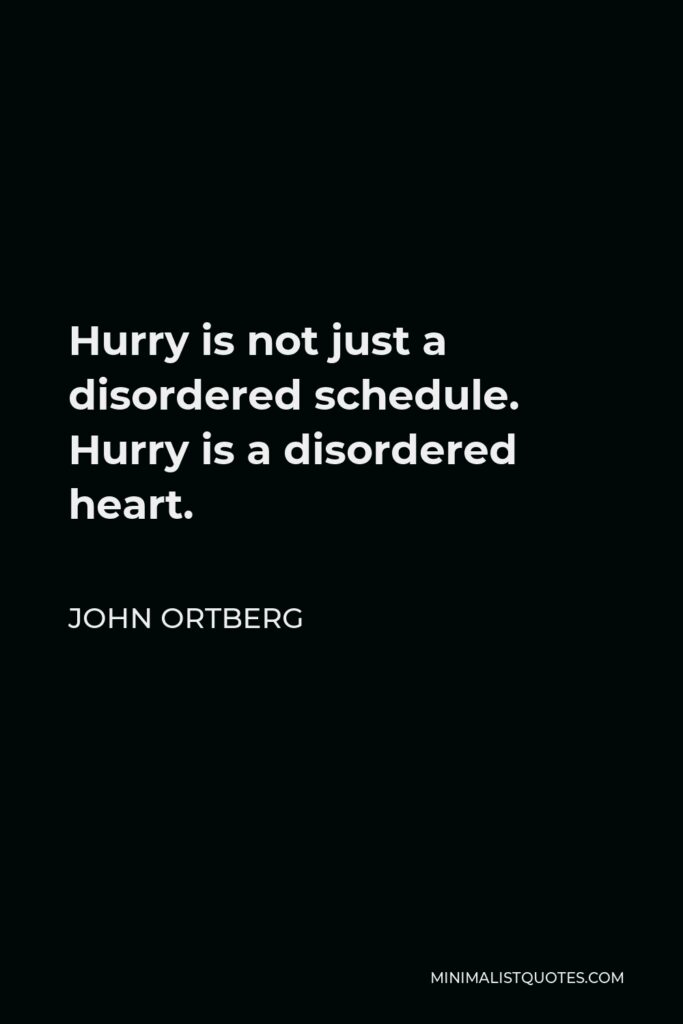There is a world of difference between being friendly to someone because they’re useful to you and being someone’s friend.
JOHN ORTBERGRelated Topics
Anand Thakur



There is a world of difference between being friendly to someone because they’re useful to you and being someone’s friend.
JOHN ORTBERG

Make your life about something bigger than your life.
JOHN ORTBERG

The good news as Jesus preached it is not just about the minimal entrance requirements for getting into heaven when you die. It is about the glorious redemption of human life-your life.
JOHN ORTBERG

God is a God of endless opportunities to do good; the God of the open door.
JOHN ORTBERG

sometimes we do not realize how much we have to be grateful for until it is threatened.
JOHN ORTBERG

The most frequent promise in the Bible is ‘I will be with you.’
JOHN ORTBERG

It only makes sense to ask God for guidance in the context of a life committed to “seeking first the kingdom.”
JOHN ORTBERG

It’s better to have the faith to embrace reality with all its pain than to cling to the false comfort of a painless fantasy.
JOHN ORTBERG

I am disappointed with myself. I am disappointed not so much with the particular things I have done as with the aspects of who I have become. I have a nagging sense that all is not as it should be.
JOHN ORTBERG

To love someone is to desire and work toward their becoming the best version of themselves. The one person in all the universe who can do this perfectly for you is God.
JOHN ORTBERG

Spiritual transformation is not a matter of trying harder, but of training wisely.
JOHN ORTBERG

The main measure of your devotion to God is not your devotional life. It is simply your life.
JOHN ORTBERG

There is no way for a human being to come to God that does not involve surrender.
JOHN ORTBERG

Hurry is not just a disordered schedule. Hurry is a disordered heart.
JOHN ORTBERG

The Bible does not say you are God’s appliance; it says you are his masterpiece. Appliances get mass-produced.
JOHN ORTBERG

You can only love and be loved to the extent that you know and are known by somebody.
JOHN ORTBERG